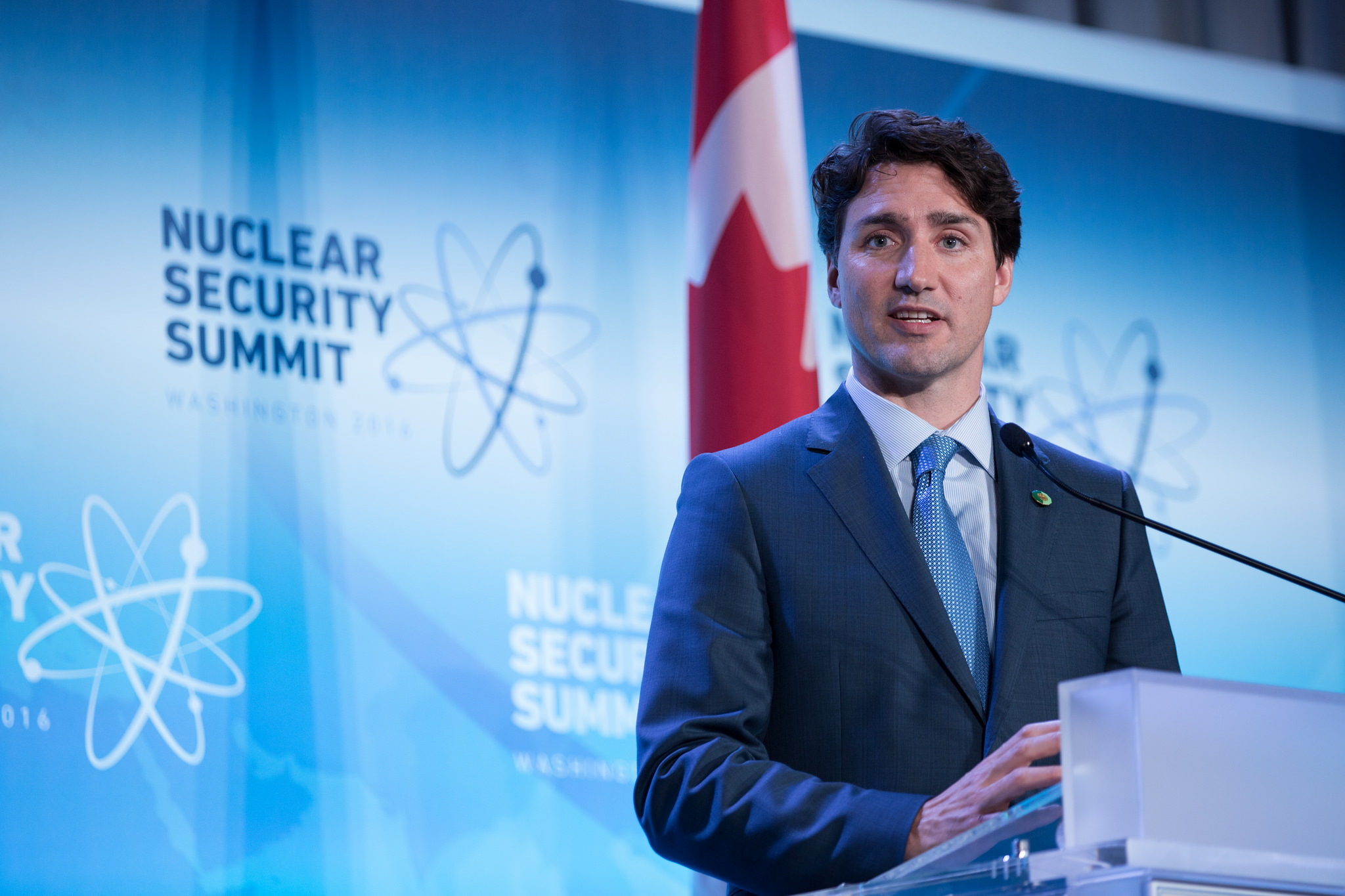Now that Donald Trump has proven himself presidential by bombing a Syrian airbase, I guess we can all relax.
Of course, there’s an off chance that things won’t work out well, that the Bulletin of Atomic Scientists will be proven correct in their decision, following Trump’s inauguration, to move the Doomsday Clock closer to midnight than it has been since 1953.
Trump appears to have stumbled on the time-honoured technique used by world leaders with flagging approval ratings — strike a foreign military target, preferably one that won’t strike back, at least not right away.
Sadly, our own prime minister has backed Trump’s illegal attack on Syria, lending credence to the narrative that the president was deeply moved by the plight of Syrian babies — as long as those toddlers don’t get any ideas about crossing the Atlantic.
Having Trump’s back may be Trudeau’s idea of putting Canada back on the world stage, but it feels more like a revival of the Harper era.
And while the Trudeau team is very worked up about chemical weapons, they seem strangely unconcerned about nuclear ones.
Indeed, the Trudeau government is breaking a long-standing and worthy Canadian practice by snubbing important new UN negotiations aimed at nuclear disarmament.
The new talks, involving more than 120 nations, have been hailed as the most significant development in nuclear disarmament in two decades. They were launched in New York late last month — with Canada refusing to participate.
While the media has largely ignored the story, Canada’s boycott has prompted condemnation from more than 900 Order of Canada recipients, led by Nobel-laureate John Polanyi and former Canadian Ambassador for Disarmament Douglas Roche, who calls the Trudeau government’s stance “astounding” and “a denial of the country’s long track record of working constructively for nuclear disarmament.”
Ironically, that long record included Pierre Trudeau, who in 1983 showed some outside-the-box thinking and considerable gumption in leading a peace mission to Moscow, Washington and other nuclear capitals, to press for an end to the nuclear arms race.
That moxie doesn’t appear to run in the family, even though the world needs it now more than ever, with Trump tweeting about his intention to “greatly strengthen and expand” America’s nuclear capability. (Who knows what button he might reach for if he sees more photos of injured babies?)
Even before Trump, the revival of world spending on nuclear arms and the gridlock in disarmament talks led a group of 50 exasperated nations, supported by a worldwide grassroots movement, to push for a new UN initiative aimed at establishing “a legally binding instrument to prohibit nuclear weapons.”
The innovative move won the overwhelming support of 123 out of 193 nations in a UN vote last October.
But the U.S. and the other big nuclear powers rejected the initiative. Washington also pushed its NATO allies to vote no, arguing in a letter that the initiative was “fundamentally at odds with NATO’s basic policies …”
Trudeau, showing none of his father’s mettle, capitulated to the U.S. pressure, bypassing a chance to step up to the plate on an issue crying out for world leadership.
Worse, by voting no, Trudeau offered up Canada’s international prestige to the U.S. boycott of the talks, providing Washington cover for its refusal to come to the table.
Interestingly, the Netherlands, also a NATO ally, is participating in the talks. It turns out the world needs more Holland.
The Trudeau government insists there’s no need to participate because, without the nuclear-armed states involved, the talks have no chance of succeeding.
But that’s surely the reason to participate; the leaders of nuclear states must be made to feel the sting of global disapproval for forcing us to live in a world on hair-trigger alert, potentially only minutes away from annihilation.
No other issue imperils us all so immediately and profoundly, nor faces such big power resistance. Leaders of nuclear-armed nations want to preserve the status quo, keep the limelight focused elsewhere, with the public lulled into believing there’s little immediate danger and no prospect of eliminating nuclear weapons anyway.
The only hope, in the face of media neglect and big power intransigence, is to create a groundswell of humanity clamouring for nuclear leaders to come to the negotiating table. That’s no easy task, but having 120 countries already assembled around the table, demanding action, is a good starting point.
So where’s Canada — not at the table, it turns out, but off having a smoke with the big guys.
Linda McQuaig is a journalist and author. Her book Shooting the Hippo: Death by Deficit and Other Canadian Myths was among the books selected by the Literary Review of Canada as the “25 most influential Canadian books of the past 25 years.” This column originally appeared in the Toronto Star.




